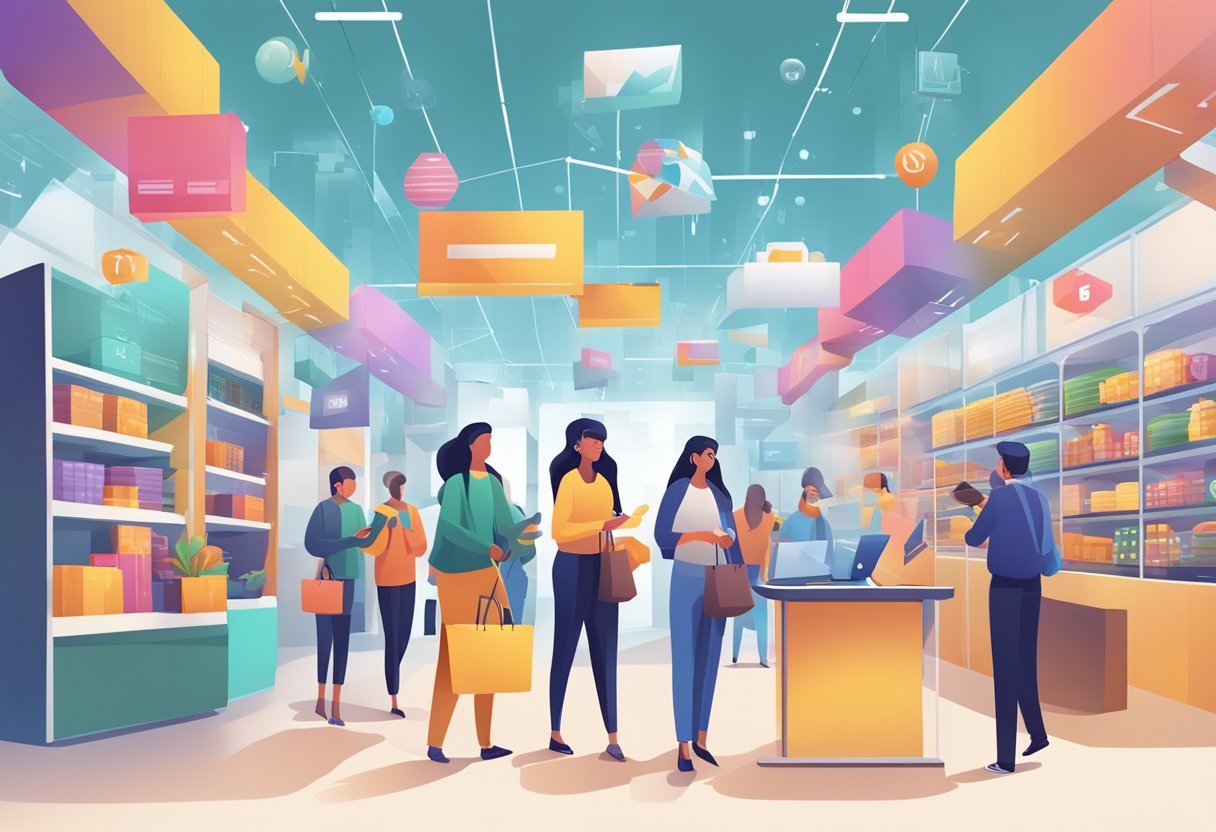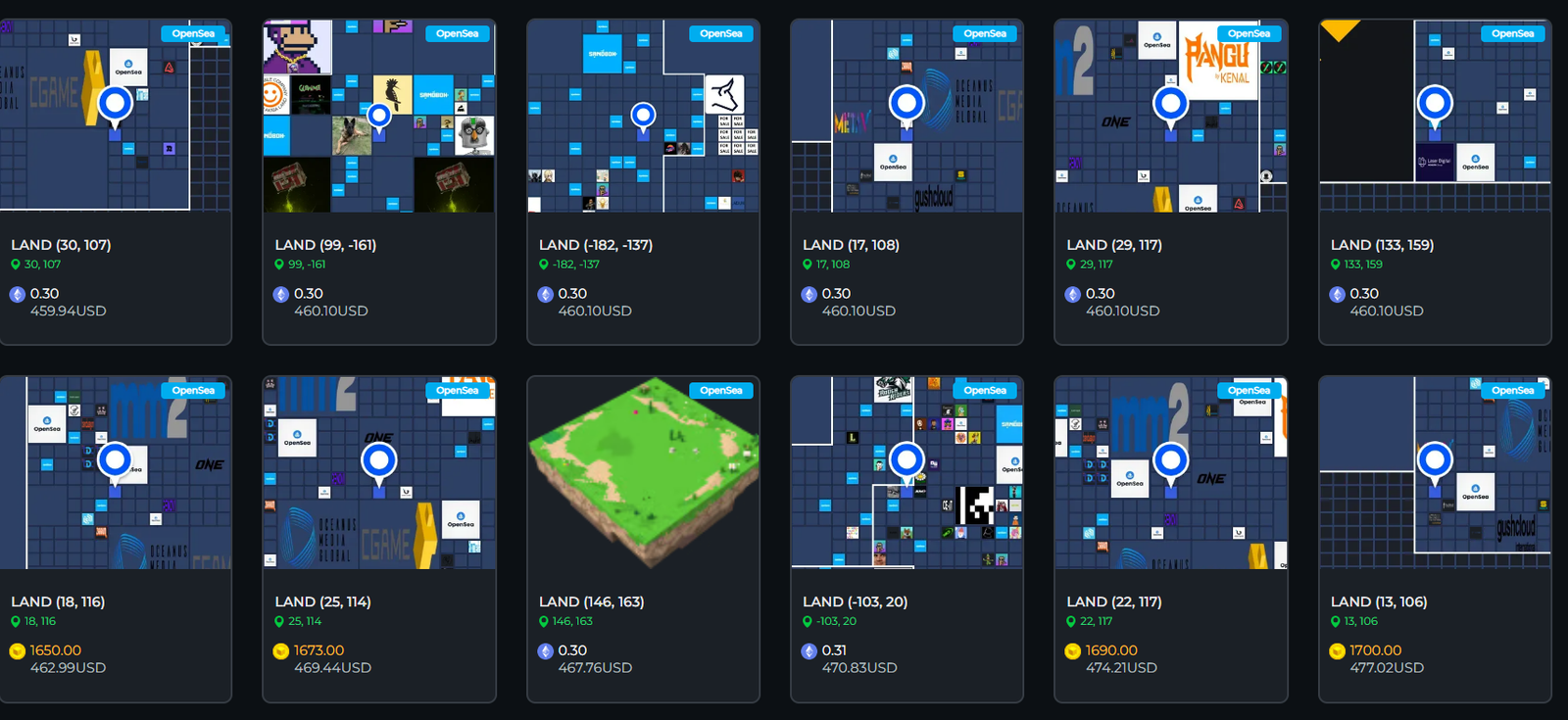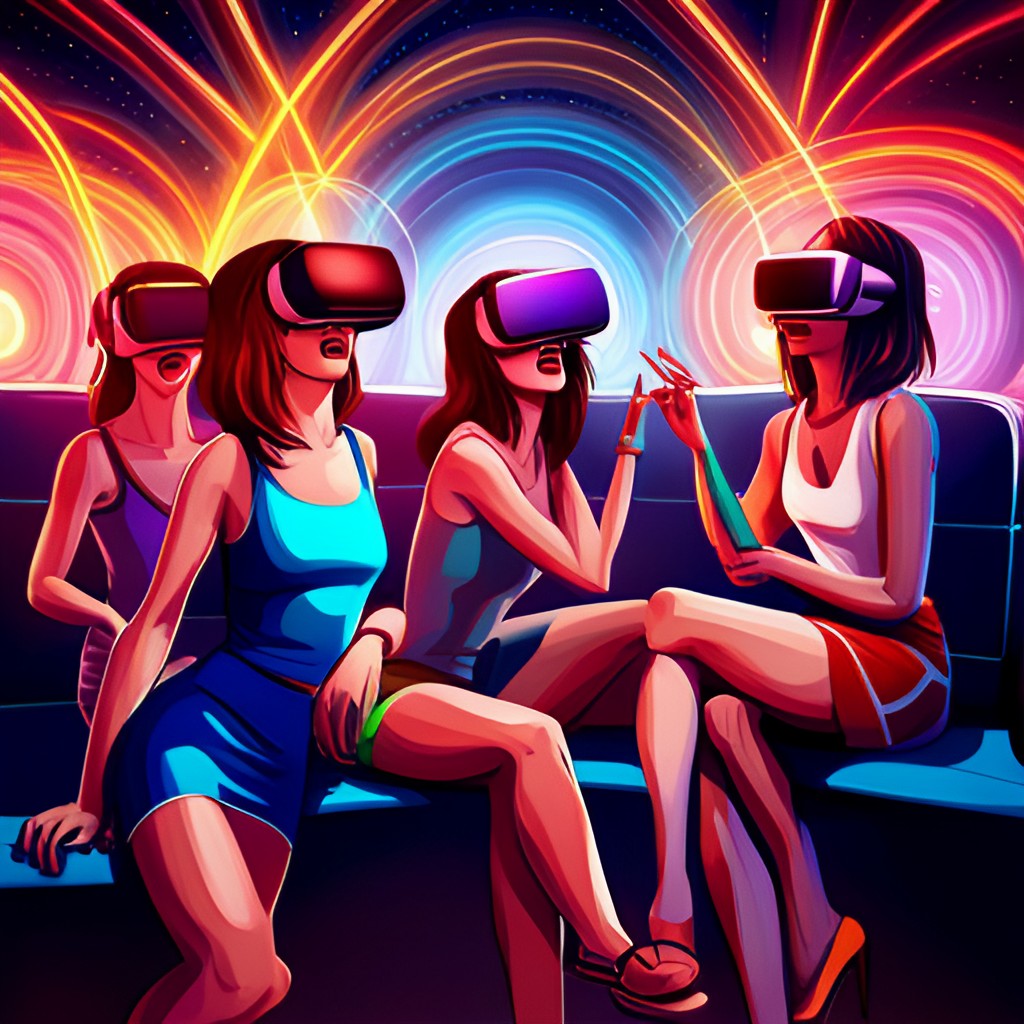The metaverse is a concept that has been around for several decades, but it is only recently that it has started to gain traction in the mainstream. The metaverse is essentially a virtual world that is created by the convergence of various technologies such as virtual reality, augmented reality, and blockchain. It is a fully immersive environment where users can interact with each other and with digital objects in real-time.
The potential applications of the metaverse are vast and varied, ranging from gaming and entertainment to education and healthcare. One of the most significant benefits of the metaverse is that it allows for the creation of new business models and revenue streams. For example, companies can use the metaverse to create virtual storefronts where customers can browse and purchase products in a fully immersive environment. The metaverse can be used to create new forms of advertising and marketing, as well as to provide training and education in a more engaging and interactive way.
Metaverse Use Cases
The potential of the metaverse is vast, and there are several use cases for both enterprise and consumer-focused applications. Here are 11 real-world metaverse use cases across various industries.
Education and Training
The metaverse can be used for educational purposes, such as virtual classrooms, training simulations, and interactive learning experiences. Students can learn in a more engaging and immersive way, and teachers can create more interactive and personalized lessons.
Healthcare
The metaverse can be used in healthcare for medical training, telemedicine, and virtual rehabilitation. Medical professionals can train in a safe and controlled environment, patients can receive remote care, and individuals can participate in virtual rehabilitation programs.
Real Estate
The metaverse can be used in real estate for virtual property tours, property management, and interior design. Buyers can view properties from anywhere in the world, and property managers can easily manage and maintain properties.
Entertainment
The metaverse can be used in entertainment for gaming, live events, and social experiences. Players can immerse themselves in virtual worlds, attend virtual concerts, and socialize with others in a virtual environment.
Retail
The metaverse can be used in retail for virtual shopping experiences, product demonstrations, and customer service. Customers can browse and purchase products from anywhere in the world, and retailers can provide personalized customer service.
Marketing and Advertising
The metaverse can be used in marketing and advertising for immersive brand experiences, product demonstrations, and interactive campaigns. Brands can create engaging and memorable experiences that connect with consumers on a deeper level.
Sports
The metaverse can be used in sports for virtual training, fan engagement, and live events. Athletes can train in a virtual environment, fans can interact with their favorite teams and players, and live events can be broadcasted to a global audience.
Architecture and Design
The metaverse can be used in architecture and design for virtual design reviews, collaboration, and project visualization. Architects and designers can collaborate in a virtual environment, and clients can visualize designs before construction.
Finance
The metaverse can be used in finance for virtual banking, investment management, and financial education. Individuals can manage their finances in a secure and convenient way, and financial professionals can provide personalized advice.
Transportation
The metaverse can be used in transportation for virtual vehicle testing, driver training, and traffic simulations. Manufacturers can test vehicles in a virtual environment, drivers can train in a safe and controlled environment, and traffic simulations can help improve transportation systems.
Manufacturing
The metaverse can be used in manufacturing for virtual product design, testing, and assembly. Manufacturers can design and test products in a virtual environment, and assembly workers can be trained in a virtual environment.
Economic and Business Opportunities
Virtual Real Estate and Marketplaces
The Metaverse offers unique opportunities for earning and investment through virtual real estate and marketplaces. Companies such as Microsoft and BMW have already invested in virtual real estate, and shopping experiences in the Metaverse are becoming increasingly popular.
Digital twins of real-world facilities or operations can be used to create virtual showrooms, and fashion brands like Gucci and Nike are already creating virtual storefronts. Marketplaces in the Metaverse offer new investment opportunities, with some companies even using cryptocurrency as a form of payment.
Branding and Marketing in the Metaverse
Branding and marketing in the Metaverse offers new ways for businesses to engage with consumers. Companies like IKEA and Siemens are using the Metaverse to showcase their products in innovative ways, and virtual events are becoming increasingly popular.
The Metaverse offers a new platform for businesses to create immersive experiences and develop brand loyalty.
Investment and Financial Services
The Metaverse offers opportunities for investment and financial services. The Metaverse could generate $4 trillion to $5 trillion in value by 2030, according to McKinsey.
Financial services companies are already exploring ways to offer services in the Metaverse, and investment opportunities in virtual real estate and marketplaces are becoming more prevalent. Hyundai has already invested in virtual real estate, and financial services companies like Fidelity are exploring cryptocurrency investment opportunities in the Metaverse.
Social and Entertainment Aspects
Gaming and Interactive Entertainment
The metaverse has revolutionized gaming and interactive entertainment by creating immersive experiences that blur the line between reality and virtual reality. Decentraland, Roblox, The Sandbox, Fortnite, Axie Infinity, and Horizon Worlds are just a few examples of platforms that offer interactive gaming experiences.
These platforms allow users to create and customize their avatars, play games, and interact with other users in virtual environments. Companies like NVIDIA Omniverse are also working to create more immersive gaming experiences by combining real-time graphics and physics simulation.
Virtual Events and Social Spaces
The metaverse has also opened up new opportunities for virtual events and social spaces. Companies like Immersive Entertainment are using the metaverse to create virtual concerts, festivals, and other events that are accessible to anyone with an internet connection.
Virtual events and social spaces are also being used by businesses to host meetings and conferences, as well as by educators to create immersive learning environments.
Digital Fashion and Avatars
The metaverse has created a new market for digital fashion and avatars. Companies like Adidas, McDonald’s, and Starbucks are using the metaverse to create unique digital fashion items that can be worn by avatars.
Users can also customize their avatars with 3D avatars and digital accessories. This has created a new market for digital fashion designers and has allowed users to express themselves in new ways.
The social and entertainment aspects of the metaverse have opened up new opportunities for gaming, virtual events, and digital fashion. These use cases have allowed users to create immersive experiences that were previously impossible in the physical world.
Education and Workforce Development
Remote Learning and Training
The metaverse offers an innovative solution for remote learning and training. With the advancement of technology, it is now possible to create immersive virtual environments that simulate real-world scenarios. This technology can be used to provide training for various vocations such as auto-mechanics, health care, welding, and many others.
The metaverse provides future workers with invaluable, cost-effective, flexible, standardized, and safe apprenticeship opportunities tailored for the demands of the global economy. This technology can also be used for language learning, competence-based education, and inclusive education.
Collaborative Workspaces
The metaverse can also be used to create collaborative workspaces where teams can work together in real-time, regardless of their physical location. This technology can be used to create virtual offices, research labs, and startup incubators.
The metaverse can also be used to facilitate remote collaboration between different departments within an enterprise, making it easier for teams to work together on projects and share ideas. The metaverse provides a unique opportunity for collaboration and innovation, making it an ideal solution for the modern workplace.
The metaverse has the potential to revolutionize education and workforce development. It provides a cost-effective, flexible, and safe way to train future workers and provides a unique opportunity for collaboration and innovation in the workplace.
As technology continues to evolve, the metaverse will undoubtedly play an increasingly important role in shaping the future of work and learning.
Frequently Asked Questions
How are businesses integrating metaverse technologies for growth?
Businesses are utilizing metaverse technologies to create immersive experiences for their customers and employees. Companies are building virtual storefronts, showrooms, and offices to provide a more engaging and interactive experience.
These virtual environments can also be used for training and collaboration among employees. Businesses are exploring the use of metaverse technologies for advertising and marketing purposes.
What are the practical applications of the metaverse in educational settings?
Metaverse technologies are being used in educational settings to provide more interactive and engaging learning experiences. Virtual environments can be used to simulate real-world scenarios, allowing students to practice and develop skills in a safe and controlled environment.
Metaverse technologies can also be used to connect students and teachers from around the world, providing opportunities for collaboration and cultural exchange.
In what ways is the metaverse being utilized in the retail industry?
The retail industry is exploring the use of metaverse technologies to create virtual storefronts and showrooms. These virtual environments can provide customers with a more immersive and interactive shopping experience.
Retailers are using metaverse technologies for advertising and marketing purposes, creating virtual events and experiences to promote their products and services.
Can you list examples of industrial sectors adopting metaverse use cases?
Industrial sectors such as manufacturing, construction, and logistics are adopting metaverse technologies for a variety of use cases. Virtual environments can be used for training and simulation, allowing employees to practice and develop skills in a safe and controlled environment.
Metaverse technologies can be used for remote collaboration and communication among employees, increasing efficiency and productivity.
What benefits and drawbacks have been identified in using metaverse platforms?
The benefits of metaverse platforms include increased engagement, interactivity, and collaboration among users. Metaverse technologies can provide a more immersive and realistic experience than traditional media.
However, drawbacks include the potential for addiction, privacy concerns, and the need for expensive hardware to access these virtual environments.
Who are the primary users of metaverse environments and for what purposes?
The primary users of metaverse environments are gamers, enthusiasts, and professionals in industries such as entertainment, education, and technology.
Gamers use metaverse technologies for immersive gaming experiences, while enthusiasts use them for socializing and exploring virtual worlds. Professionals use metaverse technologies for training, collaboration, and advertising purposes.
How is metaverse used in real life?
Metaverse technologies are being used in real life for a variety of purposes, including gaming, education, training, and advertising. Virtual environments can provide users with immersive and interactive experiences that are not possible with traditional media.
Metaverse technologies can be used for remote collaboration and communication among users, increasing efficiency and productivity.
What are the use cases of metaverse in retail?
The use cases of metaverse in retail include virtual storefronts, showrooms, and events. These virtual environments can provide customers with a more immersive and interactive shopping experience, allowing them to explore products and services in a realistic and engaging way.
Retailers can use metaverse technologies for advertising and marketing purposes, creating virtual events and experiences to promote their products and services.
Who actually uses the metaverse?
The metaverse is used by gamers, enthusiasts, and professionals in industries such as entertainment, education, and technology.
Gamers use metaverse technologies for immersive gaming experiences, while enthusiasts use them for socializing and exploring virtual worlds. Professionals use metaverse technologies for training, collaboration, and advertising purposes.
What are the potential applications of metaverse?
The potential applications of metaverse are vast and varied. Metaverse technologies can be used for gaming, education, training, advertising, and more.
Metaverse technologies can provide users with immersive and interactive experiences that are not possible with traditional media. As the technology continues to evolve, new and innovative use cases are likely to emerge.




